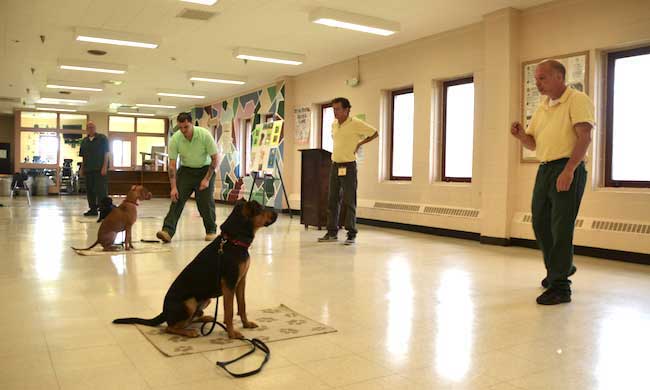County approves agreement to have rescue dogs trained by inmates at Albion prison
ALBION – Dogs at the Orleans County Animal Shelter are now being trained by inmates at the Albion Correctional Facility in a partnership between the Orleans County Sheriff’s Office and the state Department of Corrections and Community Supervision.
The county has two dogs staying in a dorm at the women’s prison for 12 weeks. Inmates will teach the dogs obedience, socialization and help make the dogs house-broken for when they go to their “forever homes,” said Kathy Smith, the county’s animal control officer.
The program is similar to one at the Orleans Correctional Facility, which trains dogs from the Genesee County Animal Shelter in Batavia. That men’s prison graduated its first class of trained dogs in October.
Susan Squires, the Albion Correctional Facility superintendent, saw the success of that prison and welcomed the program at the women’s prison.
Kelly Kukucka will work with the inmates, helping them to train the dogs, which will stay in a dorm at the prison in crates.
“It’s wonderful program,” Smith said today. “It’s a win for everybody.”
There will be three inmates working closely with each of the dogs. There is a lead handler and then two backup handlers for each dog. That gives the dogs lots of attention.
Working with the dogs also is good for the inmates.
“It gives them a feeling of accomplishment,” Smith said. “It also helps them deal with things in real life. They might feel frustrated and get upset because the animals aren’t doing what they want. You’re going to run into that in real life.”
The County Legislature last week approved the program, saying it is “a mutually beneficial program designed to enhance vocational skills to inmates and to make possible the adoption of trained canines.”










































































